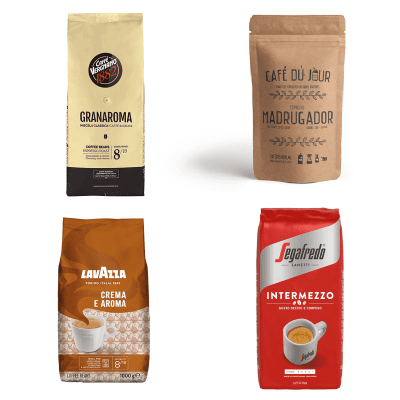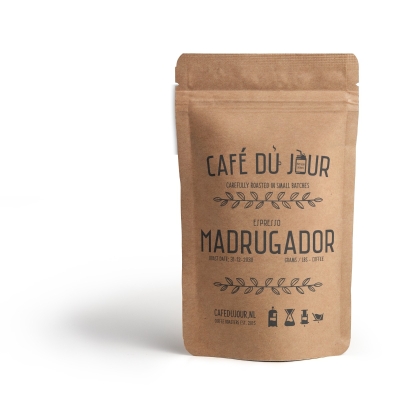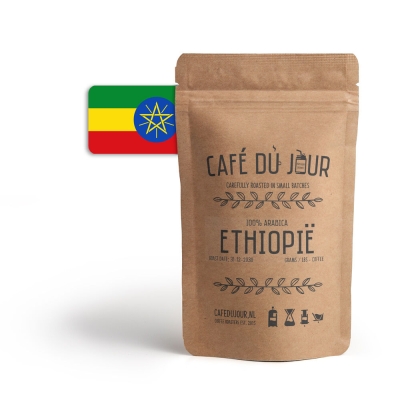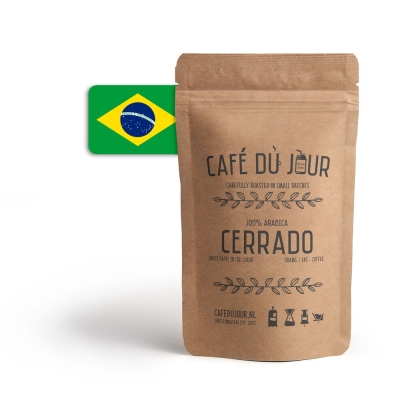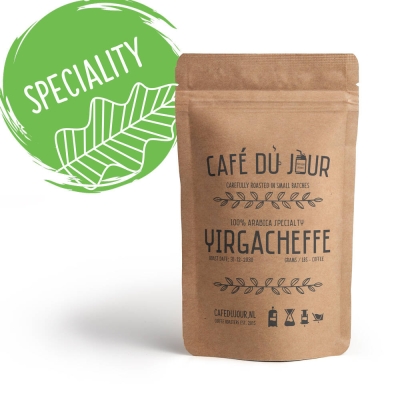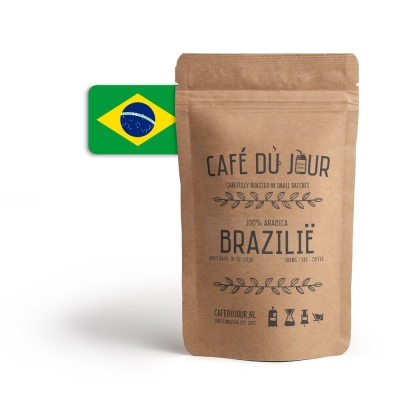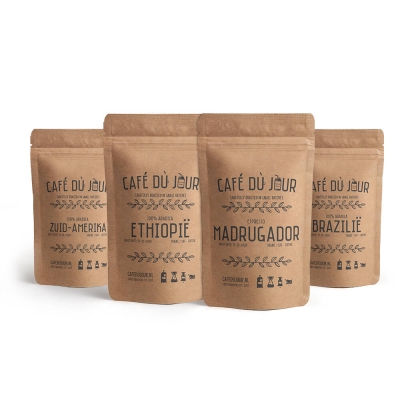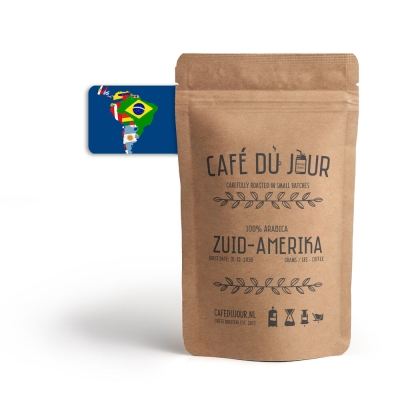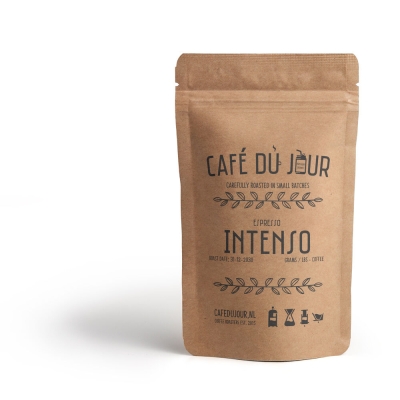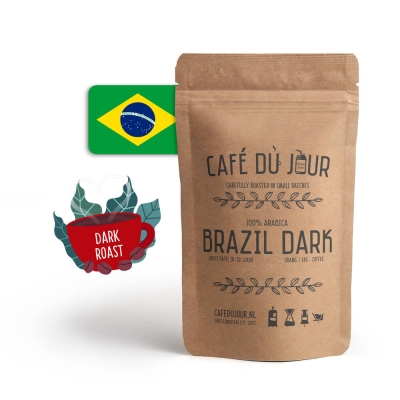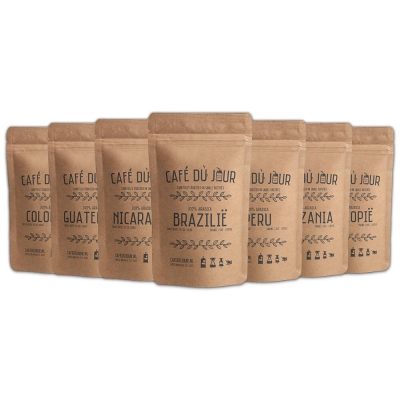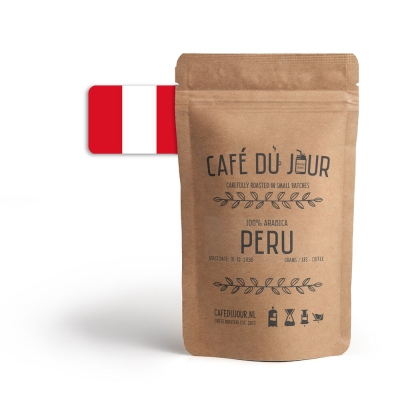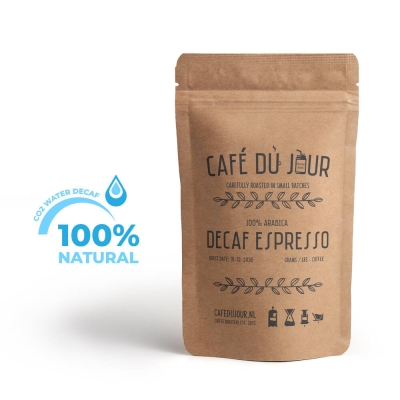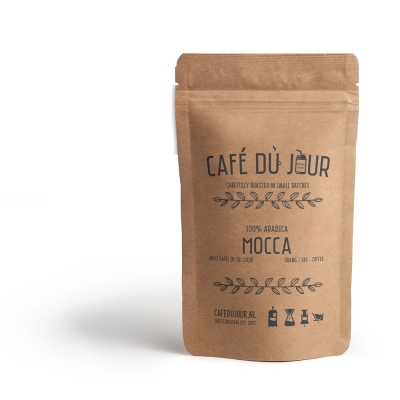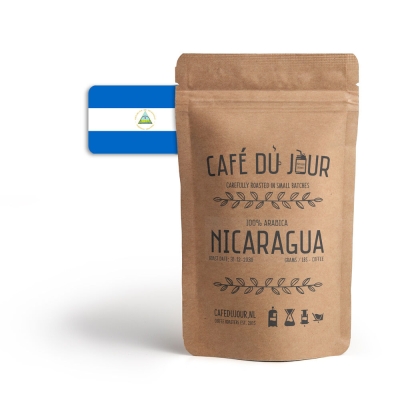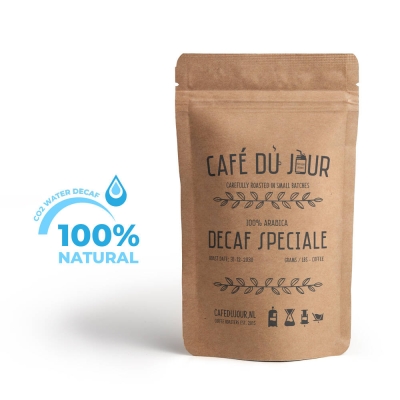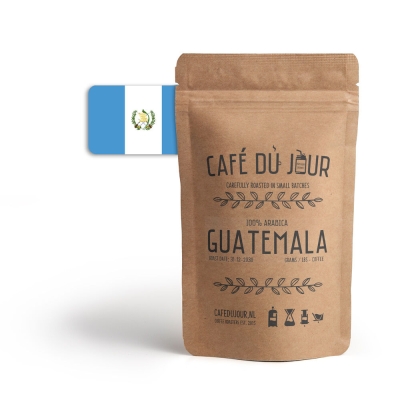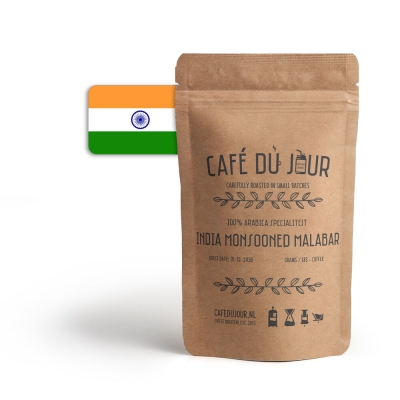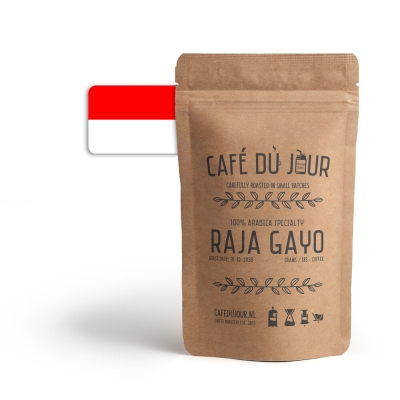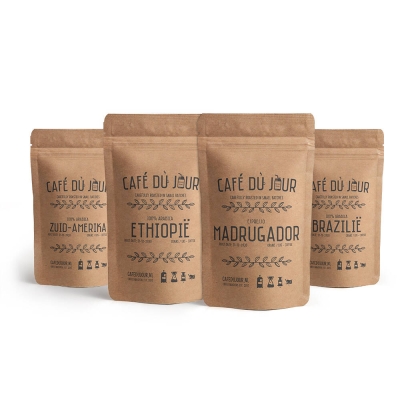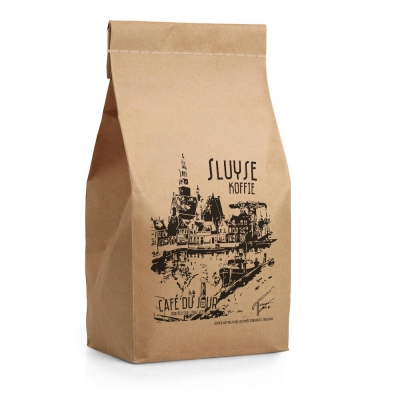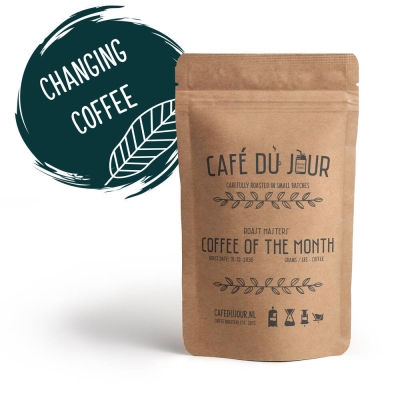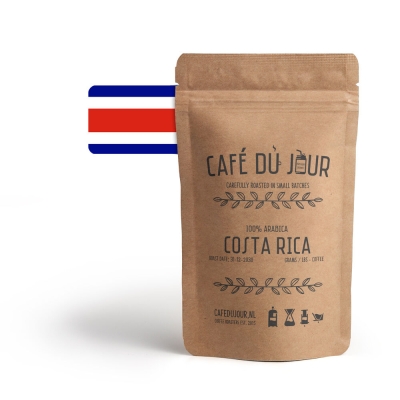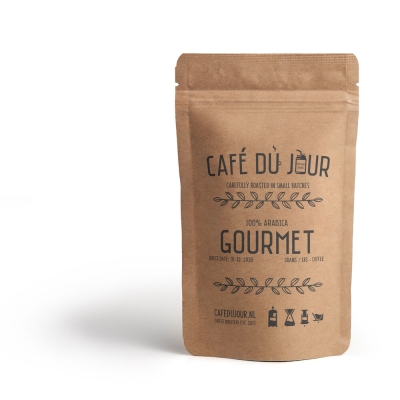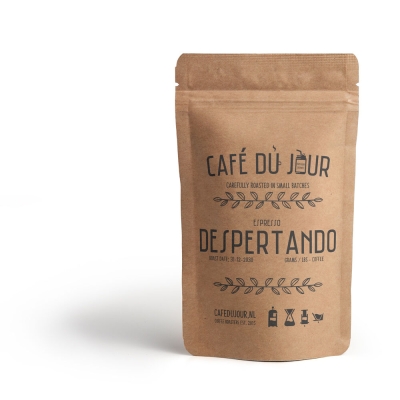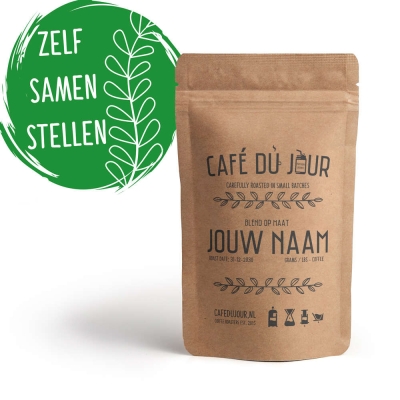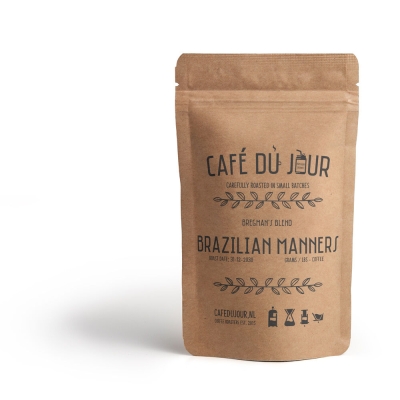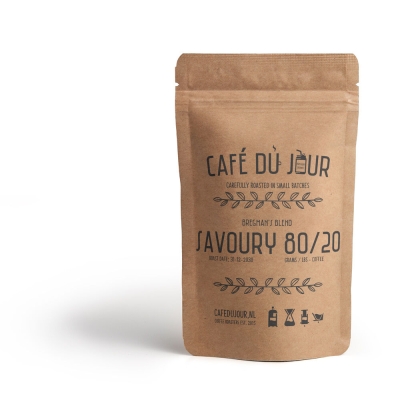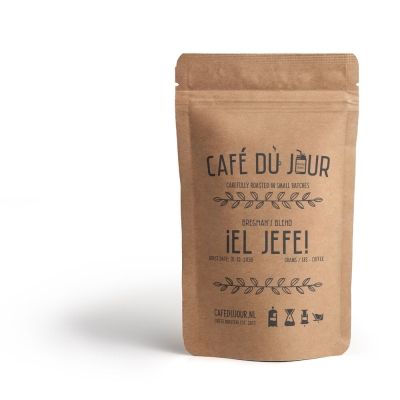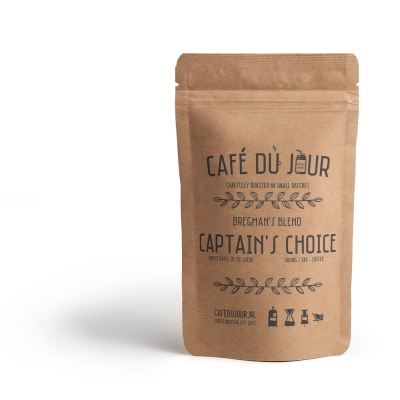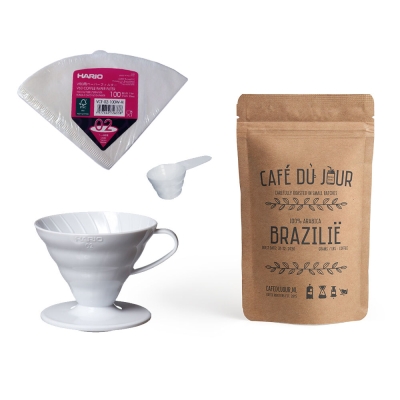Turkish coffee
Turkish tradition is all about crafting the tastiest Turkish coffee. This special coffee begins with selecting the right ground coffee. Looking for top-notch quality? Opt for finely ground coffee beans.

- Coffee beans package - Most sold - 4 x 1 kiloVarious flavours 10 - Very strong
70.42 Regular Price 72.51
- Espresso Madrugador - Fresh coffee beansChocolaty, Fruity, Spicy 8 - StrongAs low as 6.9518.95 / kg
- Ethiopia 100% arabica - Fresh coffee beansFloral, Fruity, Spicy 8 - StrongAs low as 6.9518.95 / kg
- Cerrado 100% arabica - Fresh coffee beansChocolaty, Nutty, Vanilla 5 - RegularAs low as 7.9520.85 / kg
- Yirgacheffe Speciality 100% arabica - Fresh coffee beansFloral, Chocolaty, Fruity, Honey 10 - Very strongAs low as 8.9524.65 / kg
- Bestsellers Fresh Coffee - Fresh coffee beans - 4 x 1 kgVarious flavours 8 - Strong69.9417.48 / kg
- South America 100% Arabica - Fresh coffee beansChocolaty, Spicy 8 - StrongAs low as 6.9520.85 / kg
- Dark Roast Brazil 100% Arabica - Fresh Coffee BeansSpicy, Nutty 10 - Very strongAs low as 6.9520.85 / kg
- Peru 100% arabica - Fresh coffee beansFloral, Woody, Caramel, Cinnamon 7 - StrongAs low as 7.9521.80 / kg
- Decaf Espresso 100% Arabica - Fresh coffee beansChocolaty, Nutty 8 - StrongAs low as 8.9525.60 / kg
- Nicaragua 100% Arabica - Fresh Coffee BeansFruity, Nutty, Caramel 8 - StrongAs low as 7.9521.80 / kg
- India Monsooned Malabar 100% arabica - Fresh coffee beansChocolaty, Nutty, Tobacco 10 - Very strongAs low as 8.9524.65 / kg
- Raja Gayo Speciality 100% arabica - Fresh coffee beansChocolaty, Spicy 8 - StrongAs low as 8.9524.65 / kg
- Gourmet 100% arabica - Fresh coffee beansSpicy, Nutty, Woody, Liquorice 6 - RegularAs low as 8.9523.70 / kg
- Despertando Espresso - Fresh coffee beansFloral, Chocolaty, Fiery 8 - StrongAs low as 6.9520.85 / kg
- Blending Coffee Beans Yourself - Fresh coffee beans - 1 kgVarious flavours 10 - Very strongAs low as 22.7522.75 / kg
- Bregman's Blend Brazilian Manners - Fresh coffee beansChocolaty, Nutty 8 - StrongAs low as 8.9518.00 / kg
- Hario V60 starter pack - dripper, measuring spoon, filters and coffee - 2 to 4 cupsHario
19.36 Regular Price 19.59
0.00 / piece
What is Turkish coffee?
Turkish coffee is essentially strong coffee, similar to espresso, but with a unique preparation method, as the coffee grounds remain in the drink. Naturally, you don’t drink these grounds; they stay in your cup.
Long before the Dutch spread coffee around the globe from West Africa and Yemen, it was already enjoyed in the Arab world. The Ottomans brought these lovely flavours to Istanbul. The first coffee house in the world opened here in 1554 in the Tahtakale area, turning coffee drinking into a cultural event. Soon, more coffee houses followed, where people could read or have a chinwag on the terrace. As a result, coffee houses quickly became popular with both the toffs and the ordinary folk. Today, Turkish coffee houses are places where the middle class gather, often to play board games over a delicious cup of tea (oddly enough, not coffee). Modern cafés are now the best places to savour a good cup of Turkish coffee, or you can make it yourself at home. How? We’ll show you in a bit!
Making your own Turkish coffee?
Compared to your average cup of joe, Turkish coffee is lightly roasted and very finely ground. The coffee is added to a cezve with an equal amount of sugar, then water is mixed in. It’s all gently brought to a boil. Once it’s been bubbling for a bit, it’s poured, grounds and all, into an espresso cup. Since Turkish coffee packs a punch, it’s often served with a glass of water. The idea is to leave a bit at the bottom; no one wants a mouthful of grounds.
Requirements
- A cezve
- A coffee grinder
- Turkish coffee (finely ground)
- Small espresso cups
Make the most delicious Turkish Coffee yourself with the instructions below:
Step 1 - the grind: To make Turkish coffee, you'll need beans that are very finely ground. You can do this with a Turkish coffee grinder, known as 'the king of coffee grinders'. This is a tall and hefty grinder made of bronze and copper. Under the screw-off top, you place the coffee beans. But take care, the grind is critical because if it's not fine enough, a thick frothy layer won’t form. Many espresso grinders struggle to grind beans finely enough for a Turkish brew. A good alternative is to buy ground coffee directly from a coffee shop.
Step 2 - Cezve: Pour about 50 ml of water per cup into the cezve, a special jug made of brass or copper with a long handle. Add sugar for an extra bit of flavour (Turks tend to take their coffee sweet) and stir until the sugar dissolves.
Step 3 - Heating: Heat the mixture and remove the cezve from the heat. Add a teaspoon of coffee, plus an extra teaspoon for each person. Then put the coffee back on the heat and bring it to the boil twice. In between, remove the coffee from the heat, skim off any foam that's formed and give it a good stir.
Step 4 - Settle: Before serving, add another teaspoon of cold water so that the coffee grounds sink to the bottom.
Step 5 - Serving: Pour the unfiltered coffee into small cups and enjoy!
TIP 1: Never stir while boiling, as this messes with the foam layer.
TIP 2: Keep an eye on it! If the coffee boils over, your cup will turn out bitter!
TIP 3: Adding flavour. Turkish coffee is sometimes spiced up with cardamom and cinnamon. Curious how this tastes? Just add these spices ground finely to the coffee.
The secret of Turkish: bring the Turkish feeling home!
The key to a proper cup of Turkish coffee is in the technique. Take a long-handled Turkish coffee pot, or cezve, and pour the coffee in. Adjust sweetness to your liking and place the pot on a bed of hot sand (a gas hob will do just as well).
While the coffee is warming up, you can toss in spices like cardamom for extra flavour. The aroma wafting from the bronze jug is nothing short of captivating.
Once the coffee starts to simmer and foam up, you're about to make a cracking cup of Turkish coffee. Pour it into small cups, but be sure not to stir while it's boiling, as this will spoil the frothy top.
The true art of Turkish coffee lies in the details. Let the coffee settle and be careful not to drink it all up, leaving the grounds at the bottom. Savour every sip of this unique coffee from a small cup, letting the rich taste enchant you.
10 facts about Turkish coffee
- Discovered in Ethiopia: The drink isn’t truly Turkish. It was first discovered in the Kaffa region of Ethiopia and made its way to Yemen in the 15th century. From Yemen, coffee reached Istanbul and eventually the rest of Europe. You could say the Europeans inherited coffee from the Ottomans.
- Ground coffee beans: To brew Turkish coffee, you need very finely ground beans, cold water, and perhaps a bit of sugar. You also require a special coffee pot called a 'cezve'. A cezve is a small pot with a long handle, usually made from copper or brass, made specifically for Turkish coffee. The coffee is boiled slowly, creating a thick froth. This method dates back to the Ottoman days and gives the coffee its distinctly Turkish character.
- Foam is quality: Foam is what makes the difference. In the Turkish community, coffee without foam isn’t well received. If there’s foam on your coffee, it indicates quality. It’s not unusual to hear people asking for a nice, thick froth when ordering Turkish coffee. Boiling the coffee slowly and steadily ensures a lovely layer.
- Glass of water: A glass of water always accompanies coffee, for a few reasons. Turks like to indulge their guests and observe what they drink first. This is a polite hint to see if they’re hungry. If the guest drinks the water first, they likely need a bite to eat, prompting the host to prepare food. Additionally, water is sipped before coffee to cleanse the palate for a better tasting experience, and after to avoid a lingering aftertaste. During the Ottoman era, this was also a method to ensure the sultan's coffee wasn’t poisoned. The sultan’s food was tested by the 'çeşnicibaşı,' a servant who tried everything first. Since Turkish coffee is generally made for one, the sultan had to test it himself by pouring a little water into the cup. If the coffee fizzed upon contact, it was poisoned.
- Coffee grounds: It’s quite popular to have your fortune told through Turkish coffee grounds. After finishing your cup, place the saucer on top. Make a wish, turn the cup upside down so the grounds form patterns. The fortune teller then reads these patterns once cooled. Nowadays, apps in Turkey let you send a picture of your grounds to a real fortune teller for interpretation.
- Salt in coffee: Coffee holds a special role in traditions, especially when a young man proposes. The bride makes coffee while the groom and her father chat. Instead of sugar, she adds salt to the groom’s coffee as a test. If he reacts badly, it suggests he wouldn’t make a good husband. If he drinks it without a fuss, he’s seen as a suitable partner. Over time, these customs evolve. Previously, adding loads of salt meant the girl didn’t want to marry the lad.
- 'Lokum' - Turkish delight: Your coffee was traditionally served with Turkish delight, or 'lokum,' as a means to gauge guest satisfaction. If they were pleased with their hosts, they’d eat it. This tradition's fallen by the wayside, but Turkish coffee still comes with extras like chocolates.
- It is healthy: Turkish coffee is a powerful antioxidant, boasting numerous health benefits. It helps maintain cholesterol levels, reduces cancer risk and can alleviate headaches.
- Intangible heritage: This age-old brew is protected by UNESCO and was added to the UNESCO list of Intangible Cultural Heritage of Humanity in 2013 for its unique brewing and preparation.
- Sand: While in many places, electric makers and methods like AeroPress and percolators are the norm, in the Middle East, things are a bit different. Coffee is sometimes brewed in small pots nestled in sand. Sand brewing uses hot sand as a heating medium, which ensures even heating and enhances the flavour.
Buy Turkish coffee at Café du Jour
We at Café du Jour hold a special fondness for crafting Turkish coffee. Our finely ground selection is carefully curated to bring out the full coffee flavour. Order from us today and delve into the wonder of Turkish coffee yourself!













